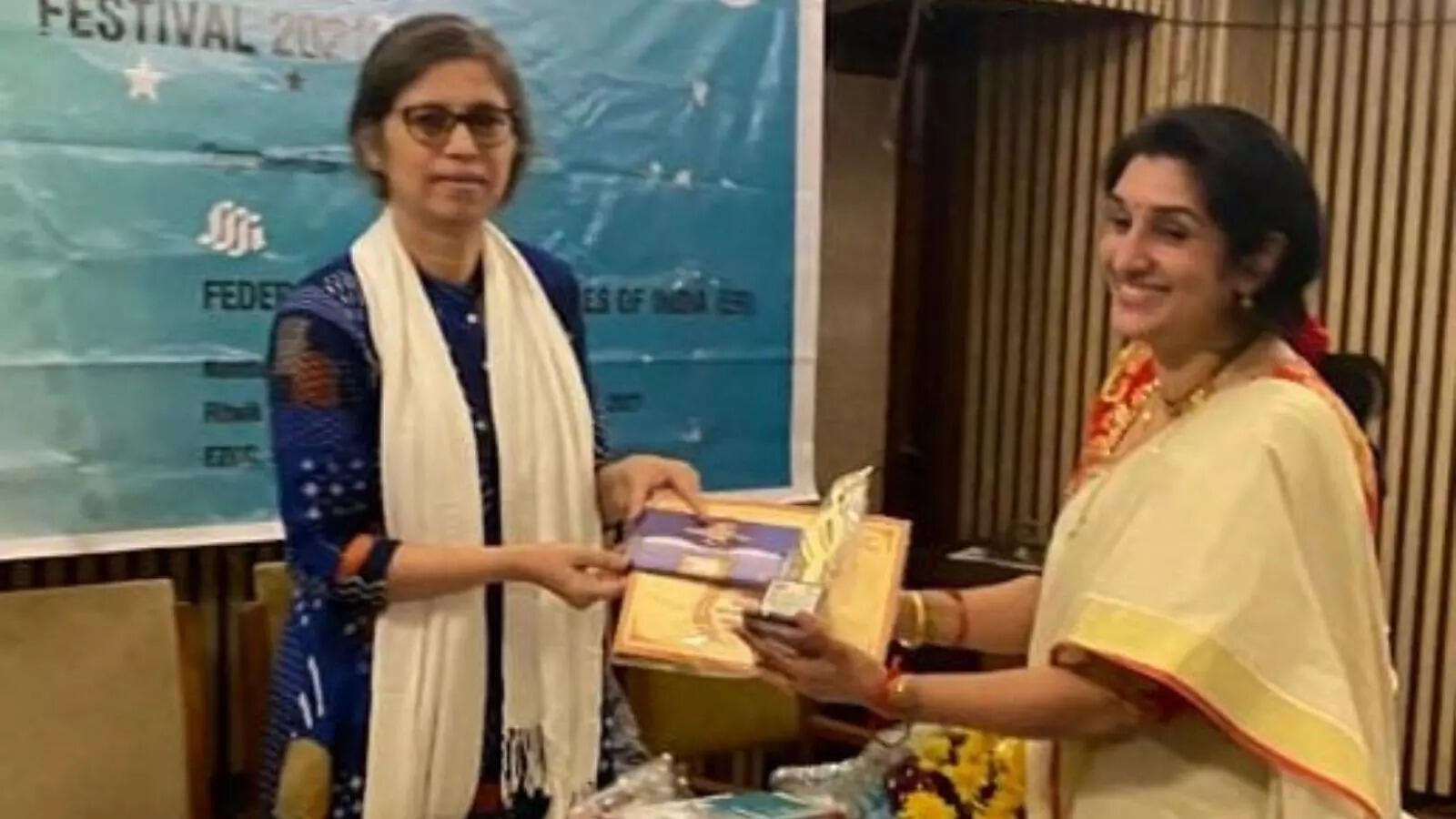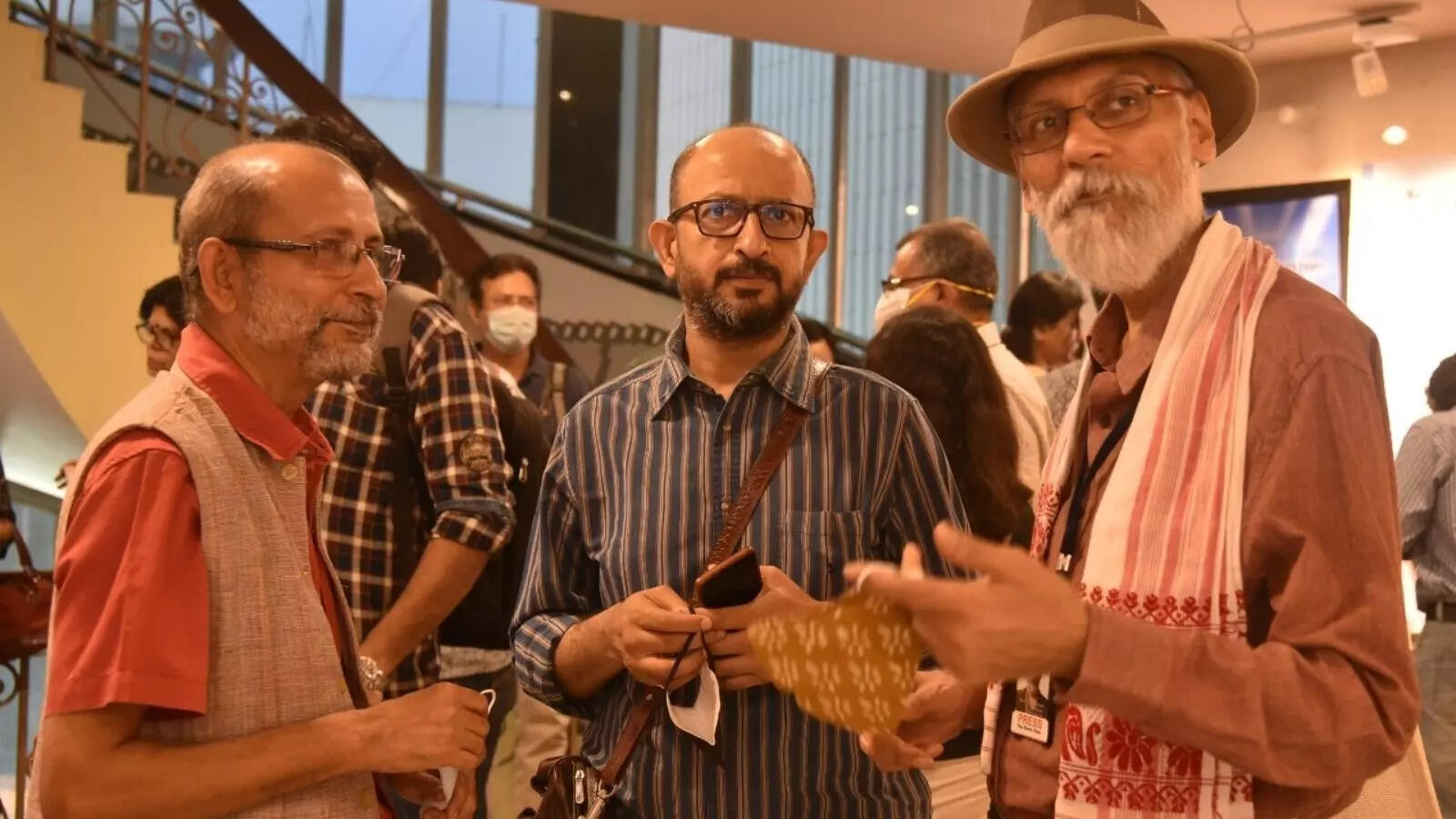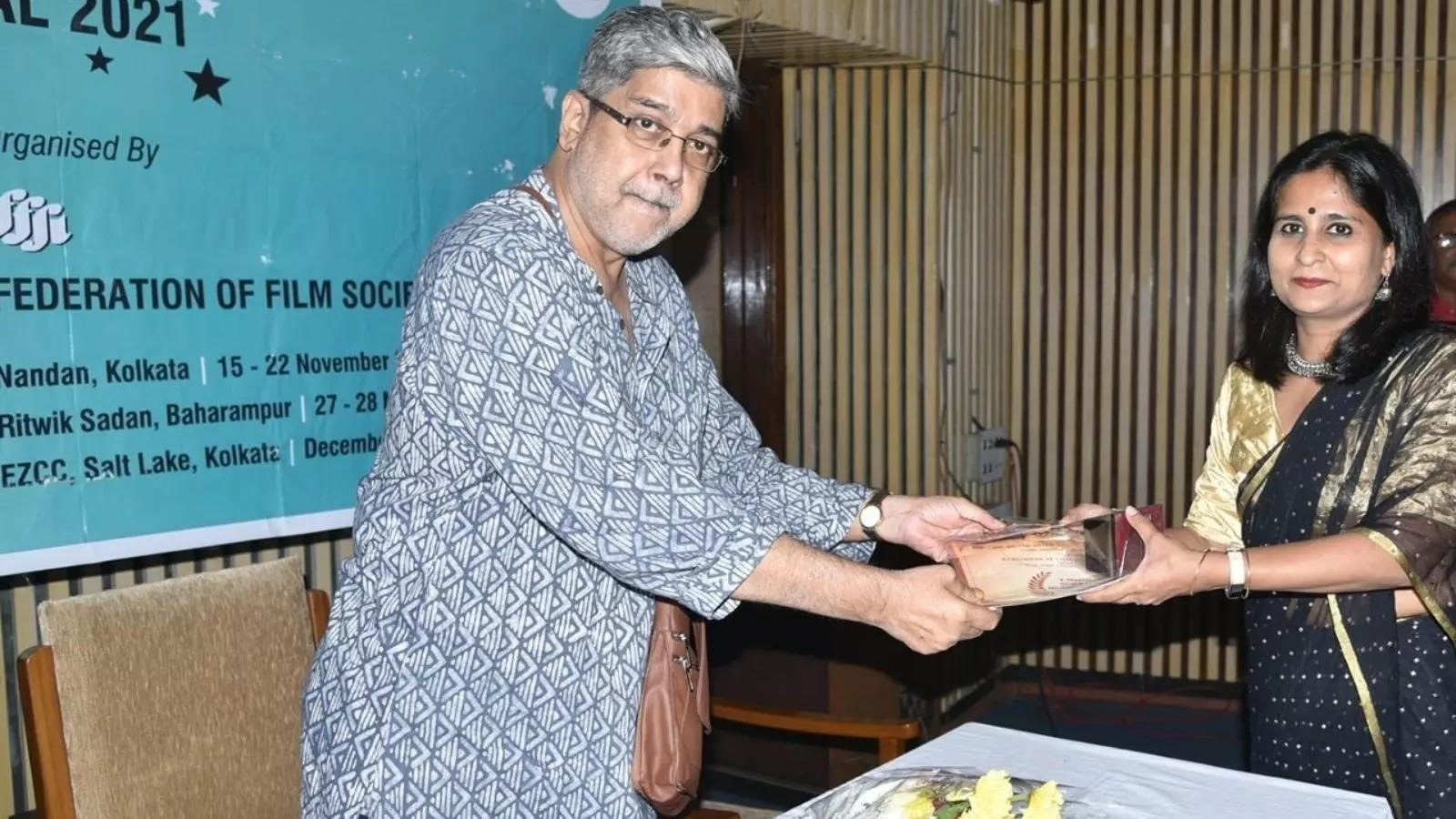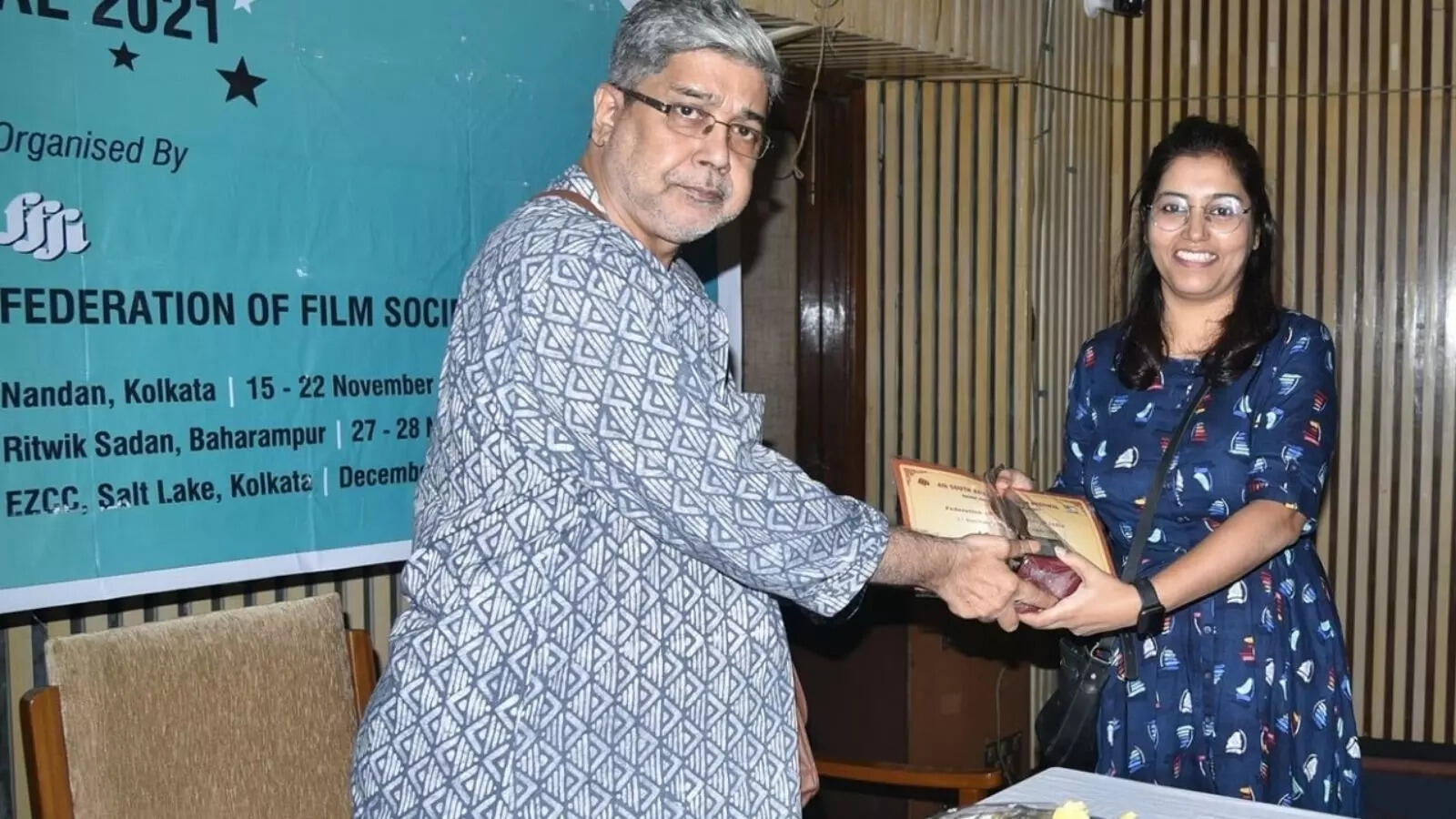festival coordinator Premendra Mazumdar Said, “Organizing the festival in this pandemic was a challenge. While we thought that people would be apprehensive about attending the festival, the reality was different. People all over India and even in Bangladesh spontaneously came down and joined in. Out of 200 entries, we screened 102 selected entries. Of them, 25 documentaries and 39 short stories were in competition. ” on Monday, Saibal MitraPutul Mahmood and Nirmal Dhar presented the awards.

Putul Mahmood presents Mrinal Sen Golden Award for Best Direction in a Documentary to Deepti Sanjeev Sivan for ‘Decoding Shankar’
Awarded to a documentary segment judged by John Hutnick (Vietnam), Panos Kotzathanasis (Greece) and Lucy Virgen (Mexico) Sourav Sarangi‘Karbala Memoirs’ was awarded the Satyajit Ray Golden Award for Best Documentary for its ‘epic’ quality. Millions of people from across the world join a peaceful march to Karbala to pay tribute to the martyrdom of Hussein, the grandson of the Prophet Muhammad, who died in a war that took place over a millennium ago. A Kolkata-based filmmaker recounted this journey into the desert in 2017 as the film ‘Karbala Memoirs’. “It is good that a film made in the time of Partition, Hate, War and Immigration got this recognition. I hope it travels more from here on out,” Sarangi said.

Sourav Sarangi, Nilanjan Bhattacharya and Nandan Saxena exchange notes
Nandan Saxena and Kavita Behl’s ‘Lakshman-Rekha’ received the Satyajit Ray Silver Award for tackling the ‘critical’ global problem of ‘Drought’ in the ‘best possible way’. The film is an intimate, cinematic window into how Laxman Singh, a school dropout, transformed a drought-hit village into a voluntary force that changed the destinies of 58 villages in the great Indian desert. The bronze award went to Digvijay Sulochana Yadav’s Sinhalese film Sunita, Caring of Phantom. The Sinhalese film tells the story of a brave woman who fearlessly follows her father’s legacy to a graveyard without any hope.

Saibal Mitra presented the V. Shantaram Golden Award for Best Direction to Navneeta Sen for ‘Visitor’
The Mrinal Sen Golden Award for Best Direction went to Deepti Pillay Sivan’s ‘Decoding Shankar’, especially because ‘the director had complete control over the medium throughout the film’. The film is a personality sketch of Shankar Mahadevan which focuses on how he balances his career as a singer, composer, teacher and family man.
Souvik Basu received a Special Jury Award for the cinematography of Sovan Tarafder‘Eighth day of the week’. Twenty-five years ago, actor-playwright-director Shubhashish Gangopadhyay founded Blind Opera in Kolkata. It was the first blind theater group in India. Tarafdar’s film followed the visually impaired actors of this group through various stages of rehearsal and staged scenes from Rabindranath Tagore’s play ‘Raktkarabi’ (Red Oleander).
Nemil Shah received the Ritwik Ghatak Golden Award for ‘Dal Bhaat’ in the short fiction category. “I have made a film on a boy who has only one wish to swim in a newly filled lake. In a small desert village in Kutch, after years of drought, 10-year-old Mukti has a simple desire to swim in the once newly filled lake. A simple desire turns into an unexpected discovery about himself, which causes him to question himself, the stigma around it, and his desire to swim in the lake. It feels good to be honored for such a film.”
The silver award went to ‘Imaginary Homes’ by Priya Naresh, while the bronze went to ‘Bless This Home’ by Randi Pavitra Kaluarachi. Naresh’s film explores how an old woman, together with her inconsistent past and a young domestic help, builds a fictional home. Kaluarachi’s film shows how a typical ‘father comes home’ scenario turns into a playful gun fight, reminiscent of old western films. As the fight between the mother and father turns serious, the children are caught in an imaginary crossfire and are eventually taken to ransom.

Saibal Mitra presented the Special Jury Prize for Short Story to Antara Banerjee for ‘The Duffer – Faltu Lok’
The V Shantaram Golden Award for Best Direction in a Short Film was taken by Navneeta Sen’s ‘Visitor’. The film is about how a 10-year-old boy wakes up and finds himself alone in his house during a pandemic. His mother, who had left for work early in the morning, is unable to return due to the curfew-like lockdown in the city. An encounter with some unusual visitors, who come unexpectedly, changes the course of his day. Antara Banerjee’s ‘The Duffer – Faltu Lok’ received the Special Jury Award in this segment. Banerjee’s film tells of what happens when Babu, a taxi driver, suddenly learns that his unmarried daughter is pregnant.
NS short film Justice was judged by Ouhiba (Tunisia), Kristina Aschenbrennerova (Slovakia) and Sharofat M. Arabova (Tajikistan). According to him, these films consider “important subjects”, show talent in the particularly difficult task of filmmaking, screenwriting, film directing and working with child actors, “give a voice” and “new newbies”. Show angle”.
,